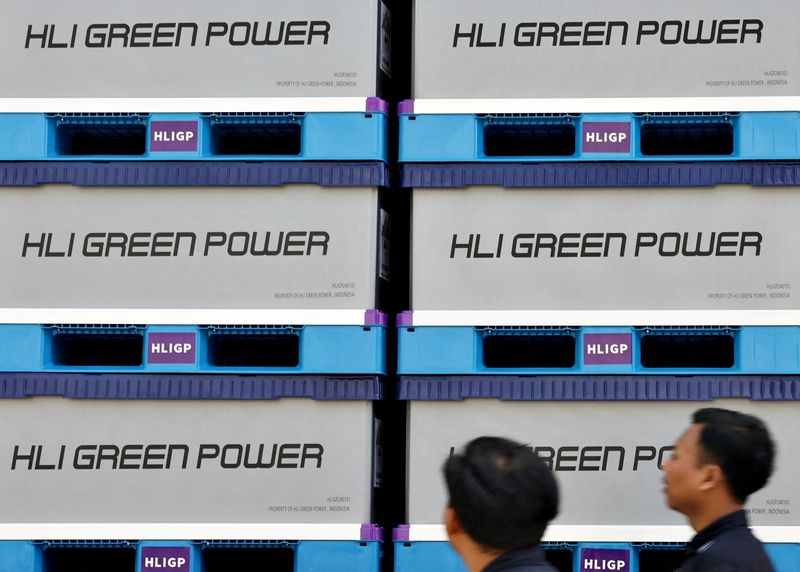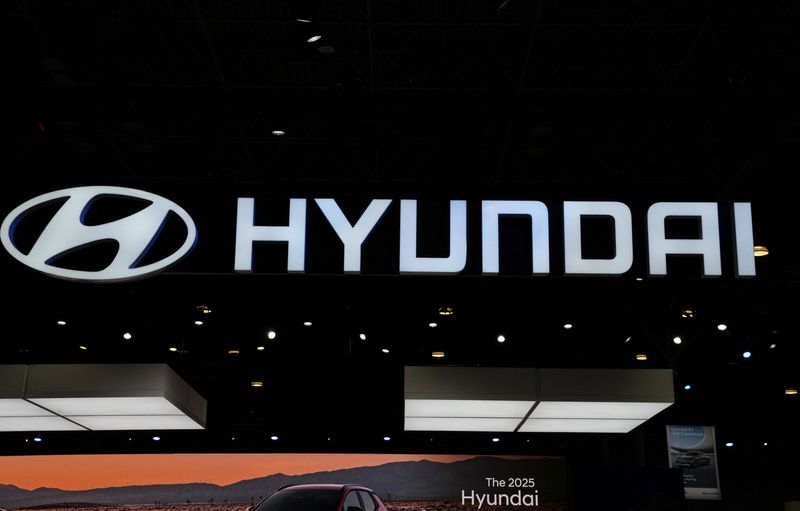By Fransiska Nangoy and Stefanno Sulaiman
JAKARTA (Reuters) -South Korea's Hyundai Motor (OTC:HYMTF) Group and LG Energy Solution (LGES) on Wednesday inaugurated Indonesia's first battery cell production plant for electric vehicles with an annual capacity of 10 Gigawatt hours (GWh) of battery cells.
The plant is part of a commitment by Hyundai Motor and LGES to invest up to $9.8 billion in Southeast Asia's largest economy to develop an EV supply chain, the Indonesian government said, to benefit from rich resources of nickel and copper.
"Mineral resources of this nation, such as iron and nickel are important components in batteries that will mobilise millions of EVs globally," Hyundai Motor Group Executive Chair Euisun Chung, said at the factory's opening ceremony.
The plant is integrated with Hyundai's auto factory where the company is set to start producing 50,000 units per year of Kona Electric, an SUV that would use Indonesian-made batteries.
Hyundai and LGES are also preparing to start developing the second phase of the battery plant, which involves an investment of $2 billion to add 20 GWh capacity to the plant.
The companies announced in 2021 that they were investing $1.1 billion in the battery cell plant in West Java province. It has enough annual capacity to produce batteries that can power more than 150,000 battery-based electric vehicles.
President Joko "Jokowi" Widodo said the plant would cement Indonesia's key position in the EV global supply chain as it establishes a domestic processing industry.
"This is the first and largest EV battery cell plant in Southeast Asia, and I am sure we will be able to win this competition with other countries because the nickel, bauxite and copper are here," Jokowi said at the same event.

Indonesia, the world's top producer of nickel, banned exports of raw nickel in 2020 to encourage investment into domestic processing of the metal.
Indonesia's Investment Minister Bahlil Lahadalia and South Korea's Minister for Trade Cheong Inkyo also met on Wednesday to discuss cooperation in electric vehicles, petrochemicals and the clean energy technologies such as carbon dioxide capture and storage, South Korea's trade ministry said in a statement.
